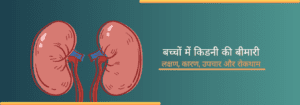I Pill Side Effects
In today’s fast-paced world, where unexpected situations arise, emergency contraceptive pills like I-pill have become indispensable for many women. However, it’s crucial to comprehend the side effects and ramifications associated with their usage. Let’s delve into the intricacies of I-pill and its potential impact on women’s health.
What is I Pill and How Does It Work?
I-pill, also known as the morning-after pill, is a type of emergency contraceptive primarily utilized to prevent unwanted pregnancies after unprotected intercourse or contraceptive failure. It contains a synthetic hormone similar to progesterone, which impedes ovulation, thereby thwarting pregnancy. It’s imperative to understand that I-pill does not terminate an existing pregnancy but rather prevents it from occurring.
Understanding I Pill Side Effects
While I-pill serves as a reliable contingency measure, it’s not devoid of side effects. Let’s explore some of the common side effects associated with its usage:
Menstrual Irregularities:
One of the most prevalent i pill effects is menstrual irregularities. Women may experience changes in their menstrual cycle, including heavier or lighter bleeding, delayed periods, or even spotting between cycles. These alterations can cause anxiety and distress among users.
Gastrointestinal Discomfort:
Nausea and vomiting are common occurrences post I-pill ingestion. The high hormonal dosage present in the pill can trigger gastrointestinal discomfort, leading to nausea and, in some cases, vomiting. This discomfort typically subsides within a few hours but can be bothersome for some individuals.
Breast Tenderness:
Some women may experience breast tenderness or soreness following I-pill consumption. This discomfort is attributable to hormonal fluctuations induced by the pill and usually resolves on its own.
Fatigue and Dizziness:
Fatigue and dizziness are additional side effects that some women may encounter after taking I-pill. These symptoms can impact daily activities and necessitate rest and hydration to alleviate.
Other Potential Side Effects:
Other less common side effects of I-pill include headaches, mood swings, abdominal cramps, and changes in libido. While these occurrences are less frequent, they underscore the importance of being informed about all possible outcomes of emergency contraception.
Implications of I Pill Side Effects on Future Pregnancy
There is a common misconception that I-pill usage can hinder future pregnancies. However, research indicates that I-pill does not impede fertility or pose any long-term reproductive repercussions. Women can rest assured that their fertility remains unaffected despite emergency contraceptive utilization.
Seeking Professional Guidance
While I-pill is an effective means of emergency contraception, it’s essential to consult with a healthcare provider before usage, especially for individuals with pre-existing medical conditions or those taking other medications. A medical professional can provide personalized guidance and address any concerns regarding I-pill usage and its potential side effects.
In conclusion, I-pill serves as a valuable resource for women in need of emergency contraception. However, it’s imperative to be cognizant of the potential side effects and seek professional advice when necessary. By understanding the intricacies of I-pill and its implications, women can make informed decisions regarding their reproductive health.
Frequently Asked Questions (FAQ)
When to Take an I-pill?
I-pill should be taken as soon as possible after unprotected intercourse or contraceptive failure. It’s most effective when taken within 72 hours of intercourse but can be taken up to 120 hours (5 days) afterward, although its effectiveness diminishes with time.
How Can I Tell Whether My Tablet Was Effective?
The efficacy of I-pill cannot be determined immediately after consumption. However, if you experience withdrawal bleeding within a week of taking the pill, it may indicate that the tablet was effective in preventing pregnancy. Nevertheless, a pregnancy test is recommended if you miss your period.
Even After Taking an I-pill, Can I Become Pregnant?
While I-pill significantly reduces the risk of pregnancy, it’s not a foolproof method. There is still a slight chance of pregnancy even after taking the pill, especially if it’s taken after ovulation has occurred. It’s essential to use regular contraceptive methods for ongoing protection against pregnancy.
Do I Need a Pregnancy Test After Taking an I-pill?
It’s advisable to take a pregnancy test if you miss your period or experience any symptoms of pregnancy after taking I-pill. Although the pill is highly effective, no contraceptive method offers absolute certainty, and a pregnancy test provides reassurance and clarity.
How Often Can I-pill Be Used?
I-pill is designed for emergency use and should not be used as a regular contraceptive method. It’s intended for occasional use in situations such as contraceptive failure or unprotected intercourse. Repeated and frequent use of I-pill can disrupt menstrual cycles and increase the risk of side effects.
Can I Use I-pill as a Regular Birth Control Pill?
No, I-pill should not be used as a regular birth control method. It contains high doses of hormones and is intended for emergency situations only. Regular contraceptive methods such as oral contraceptives or long-acting reversible contraceptives (LARCs) are more suitable for ongoing contraception.
Should I Take Multiple I-pill Tablets to Ensure the Results?
Taking multiple I-pill tablets is neither necessary nor recommended. One tablet is sufficient to prevent pregnancy if taken within the specified timeframe after unprotected intercourse. I pill tablet side effects is tha it leads hormonal imbalances.
Does an I-pill Tablet Protect from Future Pregnancies?
I-pill does not provide long-term protection against pregnancy. It’s a temporary measure to prevent pregnancy after unprotected intercourse or contraceptive failure. For ongoing protection, regular use of contraceptive methods is necessary.
I Vomited After Taking the I-pill, What Should I Do?
If you vomit within two hours of taking I-pill, it’s possible that the pill may not have been fully absorbed by your body. In such cases, it’s recommended to take another dose of I-pill to ensure effectiveness. However, if vomiting persists or if you experience severe discomfort, consult a healthcare professional immediately.
Emergency Contraception (EC)
If you’re looking to prevent pregnancy after unprotected intercourse, emergency contraception like the “i-pill” or “Unwanted 72” can be taken up to 72 hours after intercourse to reduce the risk of pregnancy. However, effectiveness decreases with time, so it’s best to take it as soon as possible after unprotected sex.
How Emergency Contraception Works:
Emergency contraceptive pills work by delaying ovulation, inhibiting fertilization, or preventing implantation of a fertilized egg in the uterus. They do not terminate an existing pregnancy.
Safe Times to Avoid Pregnancy
Understanding your menstrual cycle and avoiding intercourse during your fertile window (usually around ovulation) can help prevent pregnancy. However, this method is not as reliable as using contraception consistently.
Bleeding After Taking Emergency Contraception
Bleeding after taking emergency contraception is common and is often referred to as withdrawal bleeding. It doesn’t necessarily indicate whether pregnancy has been prevented or not.
Side Effects of Emergency Contraception
Common side effects of emergency contraception include nausea, vomiting, fatigue, dizziness, headache, and breast tenderness. It can also affect your menstrual cycle, causing irregular bleeding or spotting.
When to Take Emergency Contraception
Emergency contraception should be taken as soon as possible after unprotected intercourse. It can be taken with or without food.
Regular Contraception:
For ongoing contraception, consider using regular contraceptive methods like birth control pills, patches, injections, condoms, intrauterine devices (IUDs), or implants. These methods are more reliable for preventing pregnancy when used correctly and consistently.
What is an emergency contraceptive pill?
An emergency contraceptive pill, often referred to as the “morning-after pill” or “day after pill,” is a type of birth control used to prevent pregnancy after unprotected intercourse or contraceptive failure.
How effective is the day after pill?
The i pill effectiveness depending on factors such as when it’s taken and individual physiology. Generally, the sooner it’s taken after unprotected intercourse, the more effective it is at preventing pregnancy. However, it can still be effective up to 5 days (120 hours) after intercourse, but its efficacy decreases over time.
Can emergency contraceptive pills prevent pregnancy after 6 days?
While emergency contraceptive pills are most effective when taken within the first few hours or days after unprotected intercourse, some formulations may still offer some degree of effectiveness up to 6 days (or 120 hours) after intercourse. However, it’s essential to consult a healthcare professional for guidance specific to your situation.
What are the side effects of emergency contraceptive pills?
Common side effects of emergency contraceptive pills may include nausea, vomiting, fatigue, headache, breast tenderness, and irregular menstrual bleeding. These side effects are typically temporary and resolve on their own. However, if you experience severe or persistent symptoms, consult a healthcare provider.
I-pill Side Effects on Periods?
I-pill can affect menstrual cycles by causing irregularities such as changes in the timing, duration, or flow of periods.






